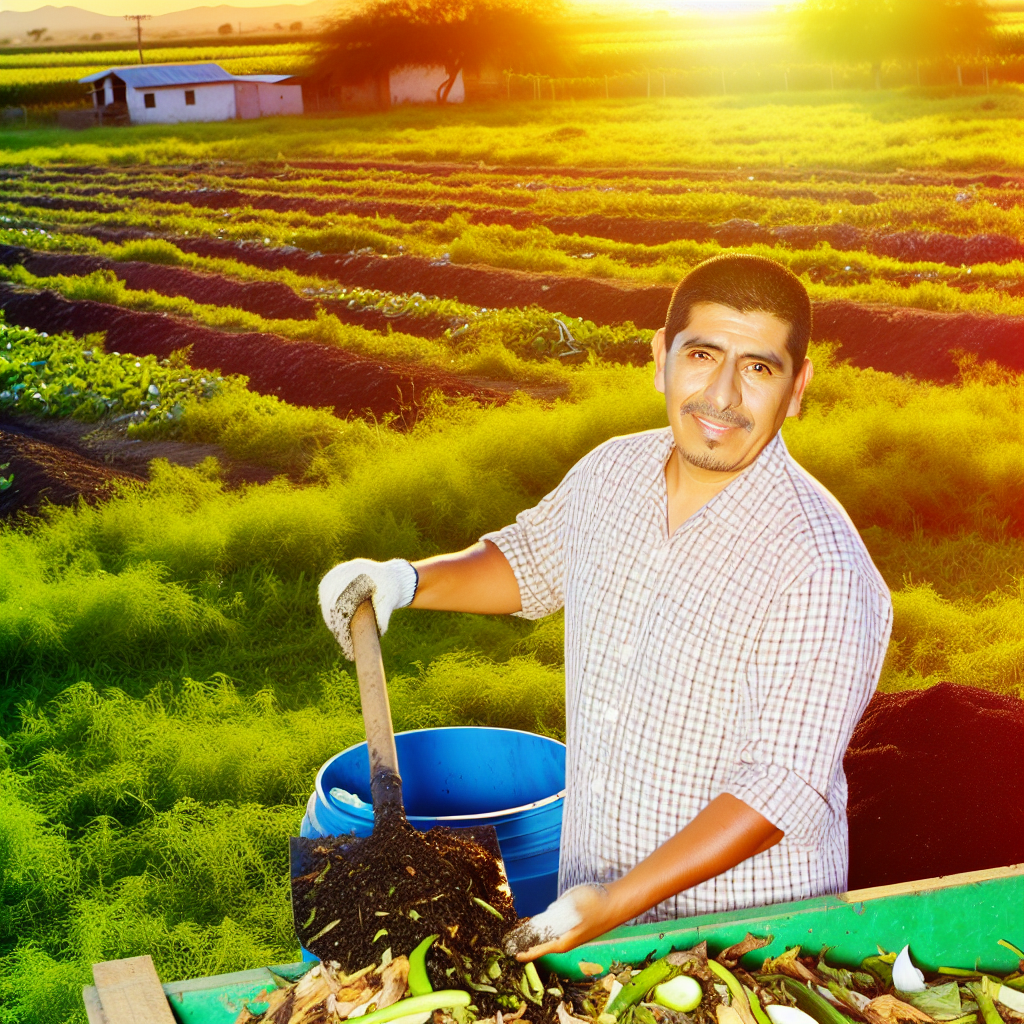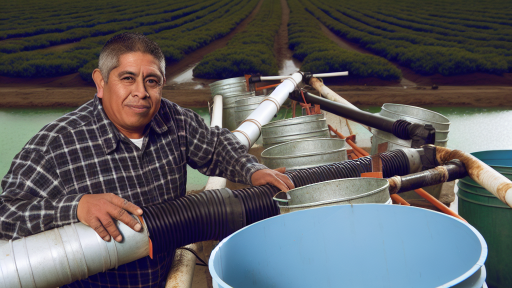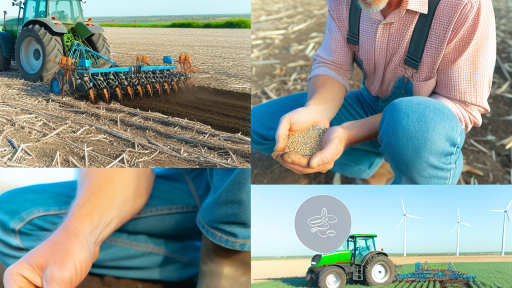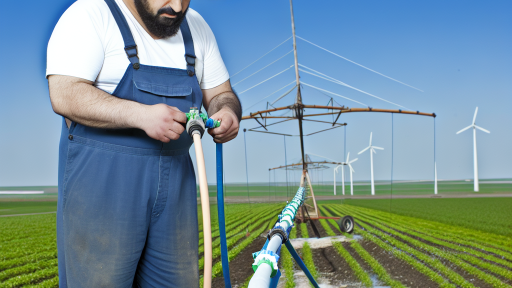Introduction to Organic Materials
Definition of Organic Materials
Organic materials refer to substances derived from living organisms.
They include plant and animal matter, and they degrade naturally.
These materials enrich soil fertility and enhance microbial activity.
Importance of Organic Materials
Organic materials play a vital role in maintaining soil health.
They improve soil structure and increase its water-holding capacity.
Moreover, they boost nutrient content and promote plant growth.
Integrating organic materials leads to healthier ecosystems.
Types of Organic Materials
Various types of organic materials exist for soil enhancement.
- Compost is decomposed organic matter.
- Green manure consists of cover crops turned into the soil.
- Animal manures provide essential nutrients.
- Leaf mold is decomposed leaves rich in beneficial microbes.
Impact on Soil Microbiome
Organic materials enrich the soil microbiome diversity.
Microbes decompose organic matter, releasing nutrients.
This process supports plant health and growth.
Long-Term Benefits of Organic Materials
Using organic materials fosters a sustainable agricultural practice.
It enhances soil health, promotes biodiversity, and ensures productivity.
Ultimately, this practice benefits both farmers and the environment.
Benefits of Recycling Organic Materials for Soil Health
Enhancing Soil Structure
Recycling organic materials significantly improves soil structure.
Transform Your Agribusiness
Unlock your farm's potential with expert advice tailored to your needs. Get actionable steps that drive real results.
Get StartedThis enhances the soil’s ability to retain moisture.
Furthermore, it facilitates better root growth.
Improved soil structure leads to increased aeration.
As a result, plants can access nutrients more effectively.
Boosting Nutrient Content
Organic recycling adds vital nutrients back into the soil.
It replenishes essential minerals like nitrogen, phosphorus, and potassium.
Moreover, these nutrients support healthy plant growth.
Consequently, plants become more resilient to pests and diseases.
Promoting Microbial Activity
Organic materials provide food for beneficial soil microorganisms.
These microorganisms play a crucial role in nutrient cycling.
Increased microbial activity enhances soil fertility.
Additionally, it aids in breaking down organic matter.
This process further enriches the soil profile.
Improving Water Retention
Recycling organic materials improves water retention in soil.
This is especially beneficial in arid regions.
Better water retention reduces the need for frequent irrigation.
Consequently, it conserves water resources.
Ultimately, plants thrive in moisture-retentive conditions.
Reducing Waste
Recycling organic materials contributes to waste reduction.
It diverts food scraps and yard waste from landfills.
In addition, this practice lowers greenhouse gas emissions.
Thus, it promotes a more sustainable environment.
Types of Organic Materials Suitable for Recycling
Kitchen Waste
Kitchen waste includes fruit and vegetable scraps.
These materials are rich in nutrients.
Showcase Your Farming Business
Publish your professional farming services profile on our blog for a one-time fee of $200 and reach a dedicated audience of farmers and agribusiness owners.
Publish Your ProfileYou can compost leftovers from meal prep.
Additionally, coffee grounds and eggshells enhance compost quality.
Yard Waste
Yard waste consists of grass clippings, leaves, and small branches.
These items contribute carbon to the compost pile.
Shredding yard waste accelerates decomposition.
Furthermore, collecting this waste supports soil health.
Agricultural Residues
Agricultural residues include straw, corn stalks, and plant trimmings.
These materials are excellent for improving soil texture.
They can also boost microbial activity in the soil.
Farmers often till these residues back into the soil.
Animal Manure
Animal manure from cattle, poultry, and horses is a valuable resource.
This organic material is nutrient-dense.
Properly composted manure prevents harmful pathogens.
Incorporating manure enhances soil fertility significantly.
Paper and Cardboard
Uncoated paper and cardboard can be recycled into compost.
Shredding these materials aids in their breakdown.
As they decompose, they provide carbon sources.
However, avoid glossy or treated paper.
Food Processing Waste
Food processing facilities generate organic waste regularly.
This waste often includes peels, rinds, and other by-products.
Recycling it back into the soil promotes sustainable practices.
Collaborating with local farms for this recycling can be beneficial.
Uncover the Details: Smart Irrigation Controllers for Efficient Water Use
Methods of Recycling Organic Waste
Composting
Composting transforms organic waste into nutrient-rich soil amendments.
This process involves the biological decomposition of materials.
It typically requires brown and green materials, water, and air.
Brown materials include dry leaves and paper, while greens include food scraps.
Combining these elements creates a balanced compost pile.
The microorganisms break down the materials over time.
During this process, they produce heat, which accelerates decomposition.
The compost should be turned regularly to maintain aeration.
Eventually, the result is dark, crumbly compost that enriches the soil.
Home composting is a practical and effective method for individuals.
Community composting initiatives can benefit larger neighborhoods.
Benefits of Composting
Composting reduces landfill waste significantly.
It also returns essential nutrients back to the soil.
This process improves soil structure and moisture retention.
Additionally, it promotes healthy plant growth through enhanced fertility.
Moreover, composting lowers greenhouse gas emissions.
Mulching
Mulching involves covering the soil with organic materials.
Showcase Your Farming Business
Publish your professional farming services profile on our blog for a one-time fee of $200 and reach a dedicated audience of farmers and agribusiness owners.
Publish Your ProfileThis practice suppresses weeds and reduces soil erosion.
Common mulch materials include shredded leaves, straw, and wood chips.
Mulch also helps retain moisture in the soil.
Using mulch improves soil temperature regulation as well.
It naturally breaks down to enrich the soil over time.
Applying a thick layer of mulch can enhance microbial activity.
Benefits of Mulching
Mulching provides a protective layer for plant roots.
It reduces the need for frequent watering, saving resources.
This practice can also prevent soil compaction from rain.
Furthermore, it contributes to enhancing the landscape aesthetics.
Additionally, mulch can deter pests that damage plants.
Comparing Composting and Mulching
Both methods recycle organic materials effectively.
Composting transforms waste into a usable product.
On the other hand, mulching directly improves surface soil health.
Composting takes time and requires specific conditions.
Conversely, mulching can be applied instantly to benefit plants.
Both practices complement each other in sustainable gardening.
By using them together, gardeners can maximize soil health.
Uncover the Details: Conservation Tillage Techniques For Climate Resilience
The Role of Microorganisms in Decomposing Organic Matter
Understanding Microorganisms
Microorganisms are essential for the decomposition of organic materials.
They include bacteria, fungi, and protozoa.
Each group plays a unique role in the decay process.
Without these tiny organisms, organic waste would accumulate rapidly.
This would disrupt ecosystems and hinder soil health.
Decomposition Process
The decomposition process begins with the breakdown of complex organic materials.
Microorganisms use enzymes to digest dead plants and animals.
This transformation releases nutrients back into the soil.
Subsequently, nutrient-rich soil promotes plant growth.
Stages of Decomposition
Decomposition occurs in several stages.
- Initial breakdown, where larger materials are fragmented.
- Fermentation, producing organic acids and gases.
- Humification, forming stable organic matter known as humus.
Each stage contributes to nutrient cycling in the ecosystem.
Importance of Soil Microorganisms
Soil microorganisms enhance soil structure and fertility.
They help in breaking down organic matter into simpler compounds.
This process improves soil aeration and drainage.
Additionally, microorganisms help suppress soil-borne diseases.
Improving Soil Health
Healthy soils promote robust plant growth.
In turn, this leads to increased crop yields.
Moreover, organic matter contributes to moisture retention in soil.
As a result, plants can withstand drought conditions better.
Discover More: Benefits of Carbon Sequestration in Agriculture
Impact of Organic Recycling on Soil Fertility and Structure
Enhancing Soil Fertility
Recycling organic materials boosts soil fertility significantly.
Showcase Your Farming Business
Publish your professional farming services profile on our blog for a one-time fee of $200 and reach a dedicated audience of farmers and agribusiness owners.
Publish Your ProfileOrganic matter improves nutrient availability in soil.
Microorganisms in decomposed materials play a crucial role.
They break down complex substances into simpler nutrients.
This enhances plant absorption of essential elements.
Improving Soil Structure
Organic recycling positively affects soil structure.
It increases soil aggregation, enhancing aeration and water retention.
Well-structured soil allows roots to penetrate deeply.
This promotes healthier plant growth and development.
Promoting Beneficial Microbial Activity
Organic recycling supports diverse microbial communities in soil.
Beneficial microbes enhance nutrient cycling in the ecosystem.
They create an environment conducive to plant health.
This reduces the need for chemical fertilizers significantly.
Mitigating Soil Erosion
Recycling organic materials helps prevent soil erosion.
Healthy soil structure retains moisture effectively.
Increased root penetration stabilizes the soil.
This mitigates the loss of valuable topsoil.
Reducing Soil Compaction
Organic matter reduces soil compaction effectively.
Looser soil allows for better water infiltration.
Improved penetration promotes root growth.
This leads to stronger and more resilient plants.
Increasing Nutrient Retention
Organic materials enhance the cation exchange capacity of soil.
This capacity allows soil to hold more nutrients.
Consequently, plants receive more of the essential elements they need.
This process results in healthier crop yields overall.
Encouraging Sustainable Agricultural Practices
Incorporating organic recycling fosters sustainable agriculture.
This approach reduces reliance on synthetic fertilizers.
Farmers can achieve long-term soil health through these practices.
It promotes ecological balance and protects biodiversity.
Learn More: Restoring Depleted Soils Through Regeneration

Best Practices for Implementing Organic Recycling in Agriculture
Understanding Organic Materials
Organic materials include plant and animal waste.
These materials improve soil fertility and structure.
Recognizing the types of organic waste is crucial.
Common examples are kitchen scraps and yard trimmings.
Farmers should consider livestock manure as well.
Both types of waste contribute positively to soil health.
Composting Techniques
Composting transforms organic waste into nutrient-rich humus.
Farmers can use aerobic or anaerobic composting methods.
Aerobic composting requires oxygen for decomposition.
This method often generates heat, speeding breakdown time.
Anaerobic composting occurs without oxygen, producing methane.
Showcase Your Farming Business
Publish your professional farming services profile on our blog for a one-time fee of $200 and reach a dedicated audience of farmers and agribusiness owners.
Publish Your ProfileBoth techniques yield beneficial compost for crops.
Establishing a Recycling System
A structured recycling system ensures efficient waste management.
Farmers should design systems based on specific needs.
Regular collection of organic materials enhances effectiveness.
Consider implementing a designated collection area.
Involving workers can increase participation in recycling efforts.
Utilizing Cover Crops
Cover crops offer additional benefits in organic recycling.
These crops improve soil structure and prevent erosion.
Furthermore, they can absorb excess nutrients and moisture.
Planting cover crops during off-seasons enhances soil health.
Farmers should select appropriate cover crops for their region.
Incorporating Mulching Practices
Mulching retains soil moisture and suppresses weeds.
Organic mulches include straw, grass clippings, and leaves.
Applying mulch adds organic matter back to the soil.
It also reduces soil temperature fluctuations.
Farmers should regularly monitor mulch thickness for best results.
Educating and Training Staff
Knowledge-sharing can radically transform recycling practices.
Training sessions can familiarize staff with systems and techniques.
Regular workshops encourage innovative recycling solutions.
Farmers will greatly benefit from the collective knowledge of their teams.
Creating a culture around organic recycling enhances sustainability.
Challenges and Solutions in Recycling Organic Materials
Identifying Common Challenges
Recycling organic materials presents various challenges in today’s society.
A significant issue arises from contamination in organic waste streams.
Improper sorting leads to increased processing costs.
Additionally, lack of public awareness contributes to low participation rates.
Organizations also face logistical hurdles in collection and transportation.
Seasonal variations can affect the supply of organic materials.
Lastly, insufficient infrastructure hampers effective recycling efforts.
Effective Solutions
Innovative solutions can help address these challenges effectively.
Implementing community education programs increases awareness and participation.
Moreover, clear labeling can assist with accurate sorting at the source.
Regular workshops can teach residents about proper recycling practices.
Investing in technology helps optimize collection routes and processing methods.
Public-private partnerships can enhance the recycling infrastructure.
Incentives for participation can motivate households to recycle organic waste.
Strategies for Successful Recycling
Adopting specific strategies improves the effectiveness of organic recycling.
Composting is a practical option for households and communities.
Encouraging onsite composting can significantly reduce waste volumes.
Community composting programs offer accessible solutions for urban areas.
Additionally, businesses can implement waste audits to track and reduce organic waste.
Showcase Your Farming Business
Publish your professional farming services profile on our blog for a one-time fee of $200 and reach a dedicated audience of farmers and agribusiness owners.
Publish Your ProfileCreating a network for sharing resources maximizes efficiency and reduces costs.
Lastly, government policies can support local recycling initiatives and provide funding.
Case Studies: Successful Organic Recycling Programs and Their Outcomes
Community Initiatives in Urban Areas
Urban communities often face significant waste management challenges.
However, innovative recycling programs can transform organic waste into valuable resources.
For instance, the Green City Initiative in Springfield successfully implemented a composting program.
This program diverted over 50% of organic waste from landfills yearly.
As a result, it produced high-quality compost for local gardens and parks.
Community members also reported improved soil health in their gardens.
The initiative fostered a sense of community responsibility and awareness about sustainability.
University Programs Leading the Way
Several universities are pioneering organic recycling practices.
The University of California, Davis, launched a comprehensive food waste reduction program.
This program includes composting dining hall scraps and yard waste.
In its first year, the program diverted over 300 tons of organic materials.
The compost produced supports the university’s landscaping efforts.
Additionally, it engages students in sustainable practices through educational workshops.
Farmers’ Cooperatives Making an Impact
Farmers’ cooperatives are also embracing organic recycling techniques.
The Community Farm Alliance in Kentucky established a successful composting cooperative.
This initiative allows farmers to recycle crop residues and animal manure effectively.
Farmers report enhanced soil fertility and crop yields using the compost produced.
The cooperative model promotes collaboration and knowledge sharing among local farmers.
Moreover, it reduces reliance on commercial fertilizers, benefiting the environment.
Private Sector Innovations
Private companies are joining the movement towards organic recycling.
Wasteless Foods, an innovative startup, revolutionizes organic waste management.
They partner with restaurants to collect food scraps and convert them into high-quality compost.
Furthermore, the company offers educational resources on sustainable practices.
The outcome is a reduction in food waste, benefiting local soil health.
This model demonstrates the potential for profitable and sustainable business practices.
Long-Term Environmental Benefits
Each case study illustrates the long-term environmental benefits of organic recycling.
Improved soil health enhances biodiversity and water retention in ecosystems.
This practice reduces greenhouse gas emissions from landfills as well.
Communities adopting these innovative programs see positive changes in their environments.
The collaborative efforts further inspire others to take action on organic waste.
Ultimately, these success stories highlight the importance of sustainable practices.
Additional Resources
Ch 2. What Is Organic Matter and Why Is It So Important – SARE




